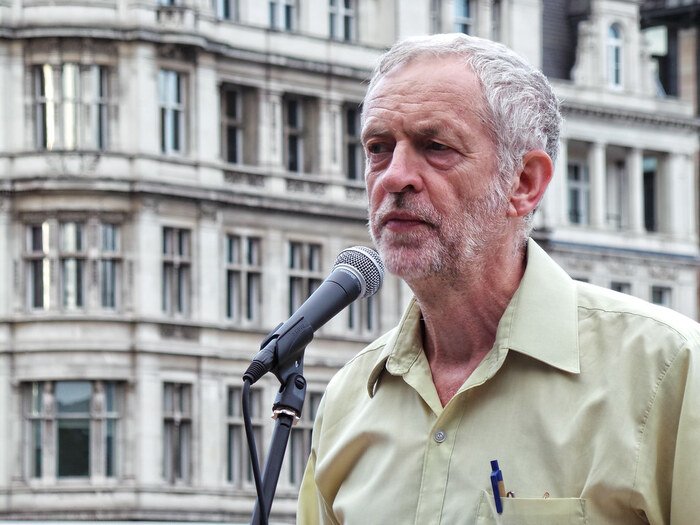In December 2019, the Labour Party led by Jeremy Corbyn suffered the party’s worst defeat in over 80 years, with the Tories winning 365 seats compared the Labour’s 202, as Labour’s “red wall” across the Midlands and the north of England – the the Party’s base for generations – crumbled.
So, what was the cause of their historic defeat, according to Indy contributor Ryan Coogan in a July 26 op-ed?
The incompetence of both the campaign and the Party’s leader, which caused it to be continually incapacitated by crisis and indecision, as highlighted in the definitive book on the subject: Left Out by Gabriel Pogrund and Patrick Maguire? No.
Corbyn’s extremist positions on both economic and national security issues? No.
The personal antisemitism of the MP from Islington North, and the tsunami of anti-Jewish racism in the Party under his leadership, as documented in the EHRC report? Also, No.
According to Coogan, the fatal problem was the “right-wing” of the party.

First, what does he mean by Labour’s “right-wing”? Well, he doesn’t really say.
However, the term “right-wing”, within Labour, is sometimes used as a pejorative by the hard left to refer to “Blairites”, a term of abuse for those who supported the centre-left politics of former prime minister Tony Blair. Alternately, it’s often used to demonise anyone not in line with whatever diktats are decided by Corbyn and his followers.
But, the following passage from Coogan’s op-ed, referencing the Forde Report, commissioned by Keir Starmer early in his leadership in the wake of the leak of a documents containing private WhatsApp messages exposing deep factionalism in Labour’s efforts to combat antisemitism, is telling:
The report also confirms that claims of antisemitism against Corbyn were weaponised by his internal enemies in order to create an air of moral panic around the prospect of his leadership
Coogan isn’t telling the truth about “claims” of antisemitism. Here’s relevant passage from the actual Report:
The panel has explored this issue [of factionalism] in detail given the number of times it was raised in the evidence received. Equally troubling was the problem of ‘denialism’ in relation to the seriousness of problems of antisemitism (not, for the avoidance of doubt, the complete denial of antisemitism was an issue in the Party whatsoever). This was principally among some of Jeremy Corbyn’s supporters in relation to antisemitism, but was also evident more widely across all factions of the Party in relation to issues of race and gender.
Some anti-Corbyn elements of the Party seized on antisemitism as a way to attack Jeremy Corbyn, and his supporters saw it simply as an attack on the leader and his faction – with both sides thus weaponising the issue and failing to recognise the seriousness of antisemitism, its effect on Jewish communities and the moral and political standing of the Party.
So, to recap: The Forde Report was clear there was a problem of ‘denialism’ concerning the seriousness of antisemitism in the Party and, also, that “both sides” “weaponised” the issue, due to the factionalism at play, thus “failing to recognise the seriousness of the antisemitism problem“.
Interestingly, a news article in the Independent on July 20th on the Forde Report accurately noted that “the Report says both supporters and internal opponents of Mr Corbyn could be accused of “weaponising the issue and failing to recognise the seriousness of antisemitism”.
Coogan’s misleading characterisation of the Forde Report in fact buys into the very “denialism” about the seriousness of the Party’s antisemitism problem that the Report itself warned against.
We’ll be contacting Indy editors to ask for a correction.





